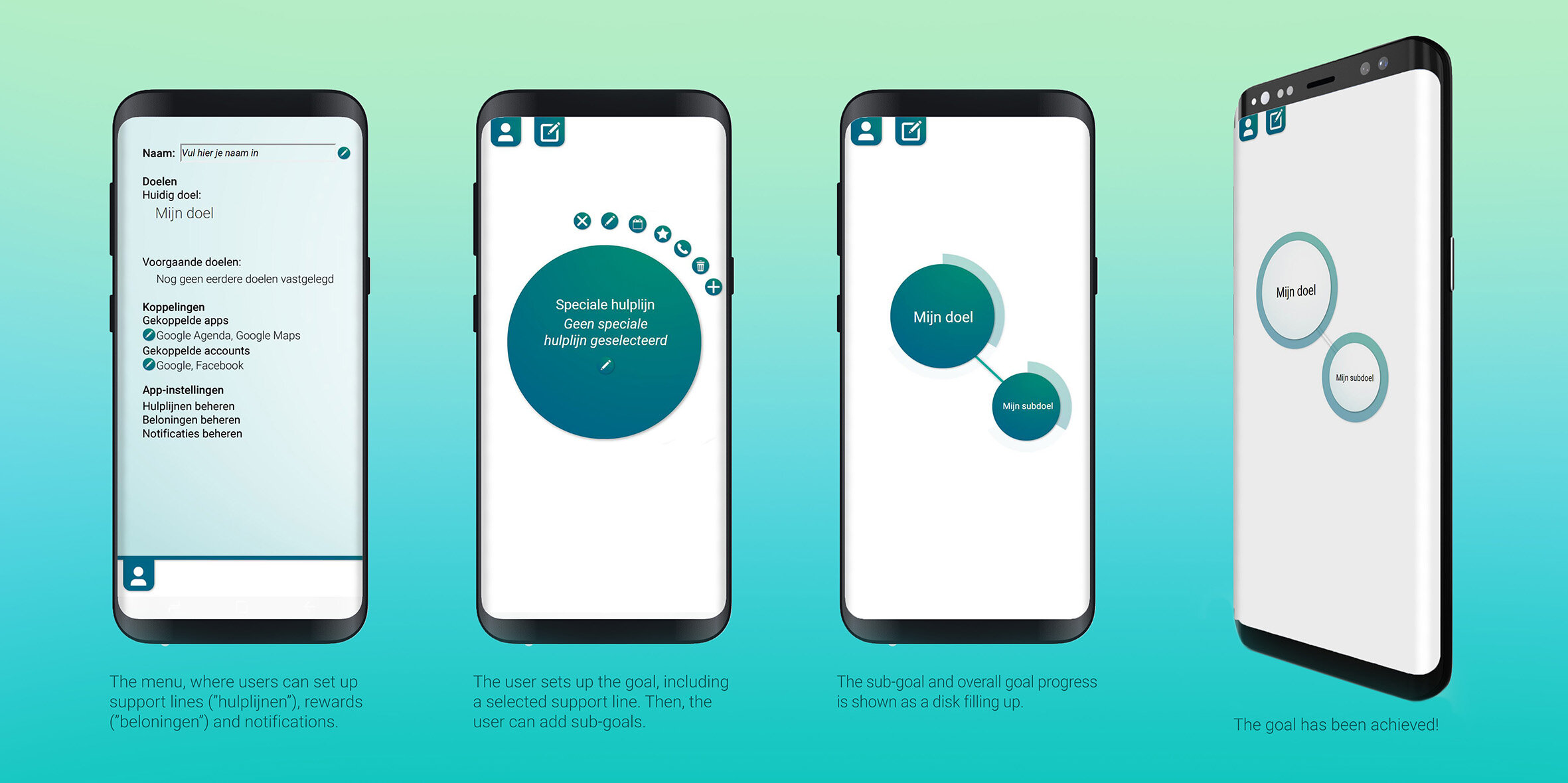
The design challenge
This project was part of a Scientific Challenges minor, which allowed me to perform design research on a personal topic. In this case I focussed on empowering young adults with an Autism Spectrum Disorder (ASD) to achieve their long-term goals.
To achieve a goal, it must first be articulated in a way. After that, a strategy must be put into place to work towards the goal. To understand how young autistic adults do this, I used co-design. Through these co-design activities, the participants supported the design of an app concept called Orenda.
Two participants from the target group took part in a sensitising package and several co-design sessions to create a product that would support and motivate them to move forward in achieving their goals.
The sensitising activity consisted of an online activity, in which the participants recorded their dreams for increasingly large time intervals. The participants were also asked to keep a photo diary, sending daily entries to me via instant messaging.
The recorded dreams and diaries were then used during the one-on-one co-design sessions. The diaries were used to establish a timeline showing the daily activities of the participants, including their opinion on these. The dreams were used as a starting point to imagine a possible product that would support their goal while fitting into their life. For this imagining a Velcro toolkit and a free form toolkit were employed.
These activities showed the preference for a software solution. Therefore the participants took part in a paper prototyping activity, where they commented on a pre-made interface using post-its, markers and scissors.
All of the activity outcomes were used to create a software prototype: the Orenda app concept.

The future
The app itself is currently not being developed. However, this project contributed to the setup of the Design Your Life project, as it offered interesting insight into how young autistic adults create personal strategies to support their daily life and how co-design strategies can play a role in this process. One of the supervisors of this project, Jelle van Dijk, has an extensive design research history on the topic of designing for the empowerment of young autistic adults. Van Dijk is also part of the group who created the Design Your Life project.





